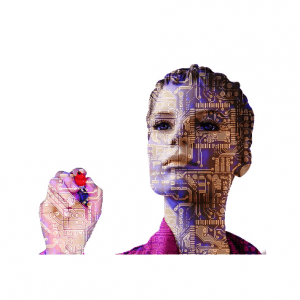New safety
How new technology could revolutionise safety
John Kersey looks at how the future technology of health and safety could change the way we work – and fundamentally shift the safety industry.
Artificial intelligence is a tool not a threat – Rodney Brooks
 We are entering a tremendous new era in new technology that will change the way we work. The safety industry and media has focussed on the human-centred or cultural approach to making progress such as the Safety Differently and accent on mental health. These are worthy in their own way. From my perspective the greatest change agent or future shaper is technology.
We are entering a tremendous new era in new technology that will change the way we work. The safety industry and media has focussed on the human-centred or cultural approach to making progress such as the Safety Differently and accent on mental health. These are worthy in their own way. From my perspective the greatest change agent or future shaper is technology.
My epiphany on this was the first intranet applications in the 1990’s, especially those around display screen equipment. Whereas it was a long winded paper-based process involving a lot of time for trained assessor and user; as an early adopter we could “push” the software to over 700 users and complete the process in a 6 week process. Smart system success.
Big epiphany
My next big epiphany was back in 2015; strangely from a story of AI based predictive analytics and drones being used to hunt ivory poachers in Africa. I actually couldn’t sleep one night as the thought of how this could be applied to safety buzzed round in my mind!
So when I learned that AI based predictive analytics were being used for safety cases on wind farms in the US the idea took hold that this was a feasible way forward. In time I think everyone involved in safety will have a similar realisation that they can shape the future rather than look back at the last accident.
Cognitive AI systems such as IBM Watson are a major gamechanger. We are now seeing an explosion of applications across industry and society as a whole. Many people are familiar with AI based virtual assistants in the home or have encountered chatbots in customer service settings. The market researchers Canalys are predicting 56.3 million sales for virtual assistant devices worldwide in 2018.
Massive investment in AI
AI as a result of massive investment is advancing at a breakneck rate and I see 2018 as the breakthrough year for safety. Advances in other areas such as healthcare can lead to safety applications. For example advanced pattern recognition – object identification (PROI) applications based on machine learning can be used to detect if workers are wearing safety workwear for example. Safety observations will be greatly simplified as a result. Testing will be more efficient as digital microscope systems backed up by machine learning speeds up material and biological analyses.
The great promise is that cognitive AI will be an advantage for those physically and mentally disadvantaged. Already we have seen the blind athlete Simon Wheatcroft run a 150 mile desert marathon using a phone app. Other apps help the physically challenged with transport options.
I see a great potential for technology to lead the way in safety especially where the situation is stalemated. The safety industry at all levels; enforcers, professional institutions, trade associations, service providers, consultants and individual practitioners can share in this change.
Disclaimer. The views expressed in this article are those of the author and do not necessarily represent those of any commercial, academic or professional institution I am associated with.
How new technology could revolutionise safety
John Kersey looks at how the future technology of health and safety could change the way we work - and fundamentally shift the safety industry.
John Kersey
SHP - Health and Safety News, Legislation, PPE, CPD and Resources Related Topics
How will AI transform health and safety?
Unleashing the power of emerging technologies in EHS
Elevating EHS in an era of global trends and regulations

